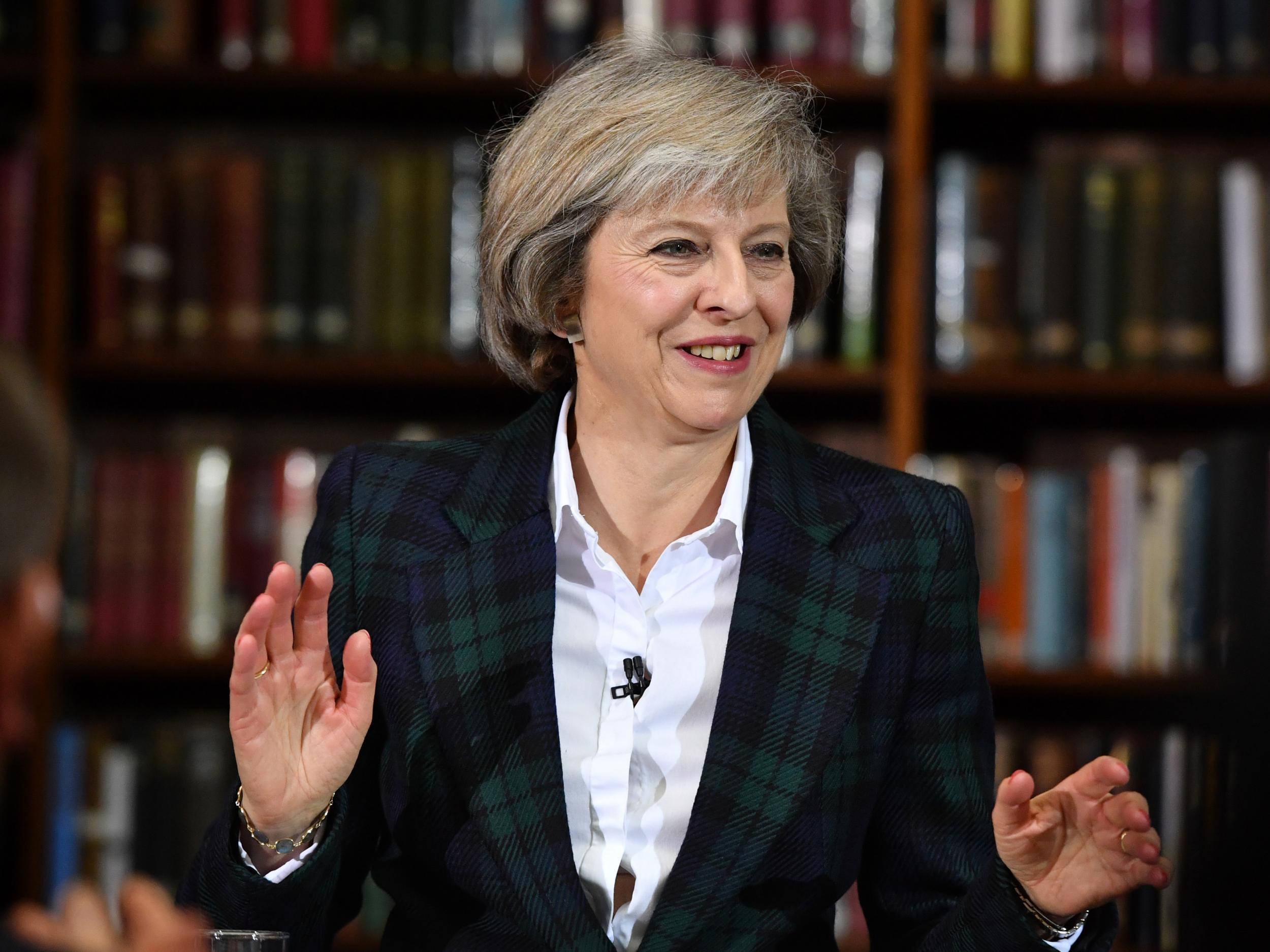Theresa May overtakes Boris Johnson as Britain's most popular politician
Exclusive ComRes poll for The Independent finds that the new Prime Minister's favourability rating has soared

Your support helps us to tell the story
From reproductive rights to climate change to Big Tech, The Independent is on the ground when the story is developing. Whether it's investigating the financials of Elon Musk's pro-Trump PAC or producing our latest documentary, 'The A Word', which shines a light on the American women fighting for reproductive rights, we know how important it is to parse out the facts from the messaging.
At such a critical moment in US history, we need reporters on the ground. Your donation allows us to keep sending journalists to speak to both sides of the story.
The Independent is trusted by Americans across the entire political spectrum. And unlike many other quality news outlets, we choose not to lock Americans out of our reporting and analysis with paywalls. We believe quality journalism should be available to everyone, paid for by those who can afford it.
Your support makes all the difference.Theresa May has overtaken Boris Johnson to become the most popular politician in the country according to an exclusive opinion poll for The Independent. The online poll by ComRes finds that the Prime Minister is viewed favourably by 42 per cent of people and unfavourably by 24 per cent, making her the only MP with a positive rating.
Her “favourable” rating is up 13 points from 29 per cent last November when she was Home Secretary, while Mr Johnson, who has topped the Favourability Index since it started two years ago, has dropped four points. Since he led the Brexit campaign his “unfavourable” rating has also risen by seven points, taking him into negative territory for the first time.
Ms May, who has been Prime Minister for one month and who is now on holiday in Switzerland, is even regarded favourably by 20 per cent of Labour supporters. She appears to be popular in her own right, with more people (45 per cent) rejecting the comparison to Margaret Thatcher than saying there are “real similarities” between them (35 per cent).

One of her possible policy changes is also popular. A majority of the British public (51 per cent) think that grammar schools are “good for social mobility”, while only 27 per cent say they are “bad”. Even if respondents are reminded of the 11-plus exam, whose unpopularity prompted the abolition of most grammar schools in the 1960s and 1970s, 47 per cent say “the Government should allow new grammar schools that select pupils through the 11-plus exam” and only 25 per cent say the Government should keep the ban on new grammar schools.
In the battle for the Labour leadership, more of the general public (37 per cent) say Owen Smith would make a better leader than Jeremy Corbyn (23 per cent), although 40 per cent don’t know. Among people who voted Labour at the last election, however, Mr Corbyn is ahead by 37 per cent to 32 per cent for Mr Smith.
Mr Corbyn remains as unpopular among the public as a whole as Nigel Farage, the former leader of Ukip, with a net favourability rating of minus 28 as against minus 27. One explanation for Mr Corbyn’s unpopularity found few takers: only one in eight people (12 per cent) and one in five current Labour supporters (19 per cent) agree with Len McCluskey, the leader of the Unite union, that MI5 is behind some of the online criticism of Mr Corbyn.
Mr Smith’s net rating is only minus 14, but 64 per cent say they have neither a favourable nor an unfavourable opinion of him or they don’t know. If the Labour challenger remains widely unknown, he may take some consolation from the fact that as many people have no opinion of the new Chancellor, Philip Hammond, or his shadow, John McDonnell.

The poll found no evidence of regrets about the EU referendum. Despite some complaints that the question was too complex to be decided by a national vote, and the finding in last month’s poll that most people don’t want a second referendum, a majority, 52 per cent, said “the public should be asked in referendums to decide on major decisions about Britain’s future”, while only 35 per cent said “it is the job of politicians to make decisions about the future of the country”.
Nor was there much support for abolishing the House of Lords, as demanded by Mr Corbyn last week: only 32 per cent favoured that option.
The poll also asked about the US presidential election, and found that Donald Trump is even more unpopular with the British public than Vladimir Putin, previously the most unfavourably regarded leader to have been included in the Favourability Index. Mr Trump has an “unfavourable” rating of 76 per cent, compared with 55 per cent for Mr Putin last year. Hillary Clinton, on the other hand, is regarded unfavourably by 28 per cent, but favourably by 36 per cent, giving her a net positive rating of plus six.
Unsurprisingly, 70 per cent of people would prefer Ms Clinton to be the next president, while 12 per cent would prefer Mr Trump.
ComRes interviewed 2,017 GB adults online 10-12 August 2016. Data were weighted to be demographically representative of all GB adults. ComRes is a member of the British Polling Council. ComRes is not publishing voting intention while it reviews its methods. Full tables on the ComRes website.
Join our commenting forum
Join thought-provoking conversations, follow other Independent readers and see their replies
Comments